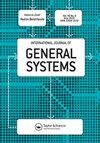一种基于语言分析和模糊逻辑的混合方法,以确保在社交媒体上监测偏执型人格障碍患者对新冠病毒的反应
IF 2.9
4区 计算机科学
Q2 COMPUTER SCIENCE, THEORY & METHODS
引用次数: 4
摘要
提出了一种基于监督学习的法语推文偏执狂检测方法。分类器使用使用混合方法的四组特征(文本、语言、元数据、时间轴)。该方法利用自然语言处理(NLP)技术对推文文本进行分析,如形态学分析、句法分析和句子嵌入等。因此,关于用户的信息,例如关注者的数量和共享帖子的数量。此外,还有关于tweet的信息,如符号的数量和标签的数量。此外,关于tweet发布日期的信息,例如上午发布的帖子数量。最后,使用统计技术对从前面步骤中提取的不同类型的特征进行组合和过滤,以计算训练语料库(标记数据)和测试语料库(未标记数据)之间的距离。此外,国家提到的统计技术用于检测患者的写作风格。总的来说,我们的方法受益于不同类型的特征,并通过利用模糊逻辑保持相对性原理。我们的结果令人鼓舞,检测偏执者的准确率为78%,检测这些人对Covid-19的行为的准确率为70%。本文章由计算机程序翻译,如有差异,请以英文原文为准。
A hybrid approach based on linguistic analysis and fuzzy logic to ensure the surveillance of people having paranoid personality disorder towards Covid-19 on social media
This paper presents a supervised learning method for paranoid detection in French tweets. A classifier uses four groups of features (textual, linguistic, meta-data, timeline) that exploit a hybrid approach. This approach uses information obtained from the text of tweets by applying Natural Language Processing (NLP) techniques to analyse them, such as morphological analysis, syntactic analysis and sentence embedding. Thus, information about the user such as the number of followers and the number of shared posts. Besides, information about tweets such as the number of symbols and the number of hashtags. Moreover, information about the publication date of tweets such as the number of postings in the morning. Finally, statistical techniques to combine and filter the different types of features extracted from the previous steps in order to calculate the distance between the training corpus (the labelled data) and the test corpus (unlabelled data). In addition, the state mentioned statistical techniques are used for detecting the writing style of patients. In general, our method benefits from different types of features and preserves the principle of relativity by taking advantage of fuzzy logic. Our results are encouraging with an accuracy of 78% for the detection of paranoid people and 70% for the detection of the behaviour of these people towards Covid-19.
求助全文
通过发布文献求助,成功后即可免费获取论文全文。
去求助
来源期刊

International Journal of General Systems
工程技术-计算机:理论方法
CiteScore
4.10
自引率
20.00%
发文量
38
审稿时长
6 months
期刊介绍:
International Journal of General Systems is a periodical devoted primarily to the publication of original research contributions to system science, basic as well as applied. However, relevant survey articles, invited book reviews, bibliographies, and letters to the editor are also published.
The principal aim of the journal is to promote original systems ideas (concepts, principles, methods, theoretical or experimental results, etc.) that are broadly applicable to various kinds of systems. The term “general system” in the name of the journal is intended to indicate this aim–the orientation to systems ideas that have a general applicability. Typical subject areas covered by the journal include: uncertainty and randomness; fuzziness and imprecision; information; complexity; inductive and deductive reasoning about systems; learning; systems analysis and design; and theoretical as well as experimental knowledge regarding various categories of systems. Submitted research must be well presented and must clearly state the contribution and novelty. Manuscripts dealing with particular kinds of systems which lack general applicability across a broad range of systems should be sent to journals specializing in the respective topics.
 求助内容:
求助内容: 应助结果提醒方式:
应助结果提醒方式:


